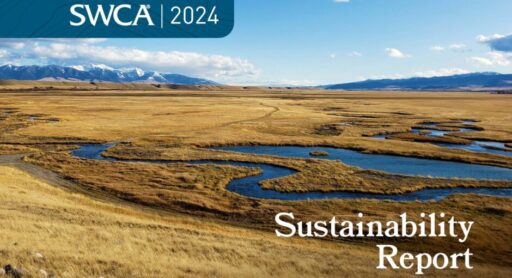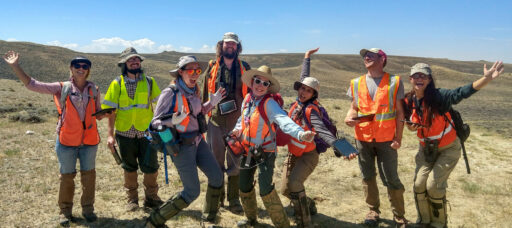2025
Comparably’s Best Company Outlook
* Providing engineering services in these locations through SWCA Environmental Consulting & Engineering, Inc., an affiliate of SWCA.

From the experts we hire, to the clients we partner with, our greatest opportunity for success lies in our ability to bring the best team together for every project.
That’s why:

At SWCA, sustainability means balancing humanity’s social, economic, and environmental needs to provide a healthy planet for future generations.

SWCA employs smart, talented, problem-solvers dedicated to our purpose of preserving natural and cultural resources for tomorrow while enabling projects that benefit people today.

At SWCA, you’re not just an employee. You’re an owner. Everyone you work with has a stake in your success, so your hard work pays off – for the clients, for the company, and for your retirement goals.
Council on Environmental Quality Seeks Comments on Greenhouse Gas Emissions
Matt Petersen is the National Environmental Policy Act (NEPA) Technical Director for SWCA. Matt has 31 years of experience as a resource specialist and has managed or provided NEPA oversight for over 30 large-scale environmental impact statements (EISs), including projects in Arizona, Alaska, Colorado, Idaho, New Hampshire, Utah, Vermont, Texas, New Mexico, California, and Wyoming. This NEPA experience includes work with most major federal agencies and encompasses resource management plans (RMPs), ski areas expansions, fire management plans, stream restoration, mining, oil and gas, pipelines, transmission lines, wind farms, airports, and power plants. Matt has taught custom NEPA seminars for the Bureau of Land Management (BLM), U.S. Forest Service (USFS), U.S. Department of Transportation Maritime Administration, and the Federal Aviation Administration (FAA). Matt has developed and routinely teaches several open-enrollment NEPA courses to industry professionals, lawyers, and agency staffs. In addition, Matt is a regular instructor on NEPA impact analysis and third-party consulting for the BLM National Training Center (NTC). Matt recently developed the BLM National Training Center courses “NEPA Analysis for EAs” and “Kick-Start Your RMP,” both of which Matt has taken on the road to BLM field offices throughout the continental Unites States and Alaska. Technical expertise includes aquatic habitat impact assessment, mitigation, and restoration; hydrological modeling and analysis; and wetland delineation, mapping, and impact analysis. Matt is also experienced in the use and application of analytical models for quantitatively assessing natural resources impacts through the NEPA process.


The Council on Environmental Quality (CEQ) published interim guidance on analyzing greenhouse gas (GHG) emissions and subsequent climate change impacts under the National Environmental Policy Act (NEPA) on January 9, 2023. This guidance updates CEQ’s 2016 interim guidance and clarifies that federal agencies should disclose project GHG emissions, including the social cost of those emissions. The guidance also recommends avoidance of GHG emissions through consideration of alternatives and/or mitigation of GHG impacts to the extent possible. Of particular importance is the guidance’s emphasis on quantifying impacts, including reasonably foreseeable indirect GHG emissions (i.e., cradle-to-grave carbon footprint). Additionally, the guidance indicates that less detailed analysis would be required for projects that result in net reductions in GHG emissions or that have very small GHG emissions, which is potentially good news for renewable energy projects. This guidance also has ramifications that expand the potential scope of the environmental justice analysis, particularly in light of Executive Order 13990, which specifically links climate change to environmental justice.
For the full text of the CEQ guidance, click on the link below. Although the new guidance is currently in effect, CEQ is accepting comments on it through March 10, 2023, with the objective of revising the guidance as necessary based on public input.
If you have detailed questions regarding this guidance or ramifications for your respective NEPA projects, please contact your SWCA project manager.